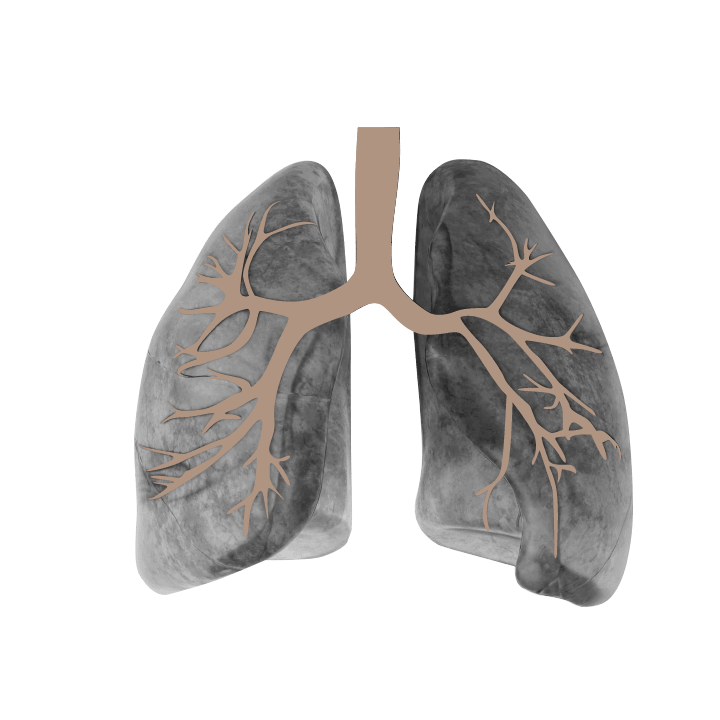9/11 Asthma & COPD Lawyers
The attack on the World Trade Center filled the New York City sky with a cloud of dust, contaminants, and polluted air. Survivors spent months of being exposed to toxins in the air that made it difficult to breathe. If you or a loved one suffers from respiratory illnesses that are connected to exposure from September 11th, 2001 – especially 9/11 COPD or 9/11 asthma claims – contact the law firm of Pitta & Baione LLP to discuss your potential benefits under the Victim Compensation Fund (VCF).
COMMON RESPIRATORY ILLNESSES IN WORLD TRADE CENTER SURVIVORS
Respiratory illnesses are a common medical concern. Some of these illnesses are results of viruses or bacteria that have spread from person to person, while others are aggravated by environmental conditions. Some conditions are recurring, which means they happen over and over again. Other conditions are chronic, which means they never go away completely. In addition to respiratory illnesses, there are many conditions and types of cancer that are eligible for benefits under the VCF, including cancers of the respiratory system.
Listed below are some respiratory illnesses and cancers that 9/11 survivors may suffer from:
Chronic Bronchitis
Bronchitis is an illness of inflamed air passageways in the lungs. Bronchitis can be a short-term or long-term illness. The inflammation associated with bronchitis can be caused by dust, allergens, or other toxins that were in the 9/11 dust cloud.
Chronic Pneumonia
Pneumonia is a respiratory illness caused by either a virus or bacteria. Another underlying illness will very often cause pneumonia to develop in the body, so multiple illnesses will need to be treated to relieve symptoms. Common symptoms include shortness of breath, coughing, muscle ache, headache, and fatigue. Pneumonia viruses are contagious and can transmit easily in crowded areas.
9/11 ASTHMA CLAIMS
Asthma comes in many varieties. Asthma symptoms commonly include coughing, difficulty breathing, chest tightness, shortness of breath, and wheezing. Asthma can be related to allergies and other non-critical conditions. Sometimes, irritants such as chemicals and dust can cause asthma to develop or make an existing diagnosis worse. When asthma develops or worsens when someone works in a setting with the irritants listed above, his or her condition may be qualified as occupational asthma.
September 11th rescue and first responders were certainly exposed to chemicals, dust, and toxins during recovery efforts that may have resulted in occupational asthma. Thus, those who have a 9/11 asthma claim should strongly consider contacting our law firm.
OUR ATTORNEYS ALSO FIGHT FOR THOSE WITH 9/11 COPD CLAIMS
Many people suffer from chronic obstructive pulmonary disorder (COPD). September 11th survivors were exposed to elements that contributed to their COPD, which included smoke, fire, fumes, and contaminated air during and after the World Trade Center attacks. Because COPD has a number of common symptoms, which do not resolve easily or for long, it is therefore considered as a chronic condition.
Symptoms of COPD include:
- Coughing
- Shortness of breath
- Coughing up mucus
- Wheezing
- Chest pain
- Fatigue
- Additional infections and illnesses of the respiratory system
- Additional illnesses and conditions which impact other organs and body systems due to not enough oxygen getting through the body.
As a result of COPD, many people experience a reduced ability to care for themselves as the disease progresses due to fatigue and mobility issues. Exercise is recommended for COPD sufferers, but many cannot do so as planned due to breathing problems. Many 9/11 COPD patients are put on oxygen and receive medication to help with breathing, restore oxygen to the body, and relieve discomfort when possible.
Infections of the Respiratory Tract
Respiratory tract infections can be viral or bacterial in nature. These infections are categorized based on the location within the respiratory tract (either the upper respiratory tract or lower respiratory tract). Symptoms of respiratory tract infections include difficulty breathing, congestion, body aches, fatigue, as well as coughing. Respiratory infections can develop from other illnesses, such as bronchitis, pneumonia, and common colds. People with weakened immune systems, lung disease, or heart disease are more susceptible to respiratory tract infections.
COMPLICATIONS OF RESPIRATORY CONDITIONS
Respiratory illnesses affect a person’s ability to breathe, which can lead to additional health complications. These complications include:
- Respiratory arrest, where the lungs stop functioning
- Respiratory failure, which increases the carbon dioxide in the blood due to lungs not functioning correctly, resulting in the blood not getting enough oxygen
- Congestive heart failure
TREATMENT FOR RESPIRATORY ILLNESSES SUCH AS 9/11 ASTHMA OR 9/11 COPD
Treatments for respiratory illnesses depend on the specific type of illness and the symptoms of the patient. If the patient has recurring bacterial infections in the respiratory tract, antibiotics may be prescribed to kill the infection – but a virus does not respond to antibiotics. Rather, treatment of symptoms may be more appropriate.
Many people with breathing issues that are associated with respiratory illness will be prescribed an inhaler, or an anti-inflammatory medication to reduce inflammation in the lungs and airways to allow air to pass more easily. Some patients may need supplemental oxygen to ensure their body is getting enough to support breathing functions.
Reducing exposure to irritants may help some people avoid respiratory illnesses. Avoiding smoke, dust, and other environmental or occupational risk factors for respiratory illness can help to either prevent a worsening of chronic conditions or the development of new conditions due to already weakened respiratory systems. Some 9/11 survivors require continual monitoring of their respiratory illnesses and must take care to isolate when there are other diseases being spread, so that they do not suffer from more severe respiratory conditions as complications of their current illnesses.
What Our Clients Are Saying
CONTACT A SEPTEMBER 11TH ATTORNEY TO DISCUSS YOUR ELIGIBILITY FOR 9/11 ASTHMA OR 9/11 COPD CLAIM
If you or a loved one suffer from a respiratory illness, such as 9/11 asthma or COPD that’s related to exposure from September 11th, contact an attorney at Pitta & Baione LLP by completing our online contact form or calling us at 844-901-1312.





